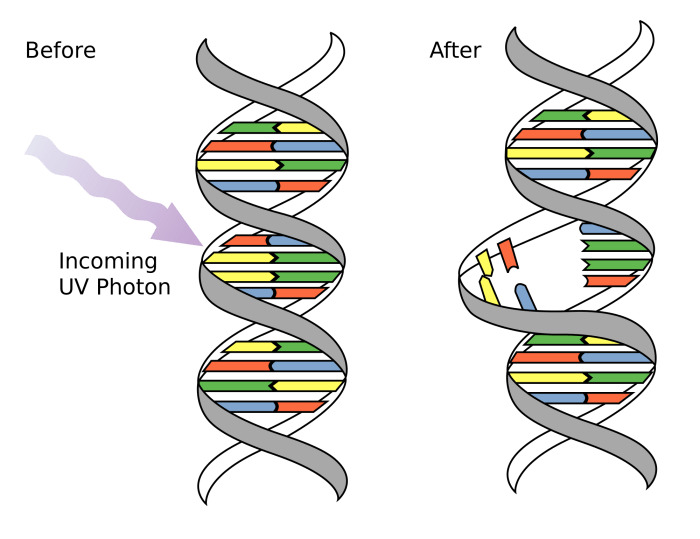Generation Genius Genes and Mutations unveils the intricate interplay between genetics and cognitive abilities, exploring the fascinating role of specific genes in shaping exceptional intelligence and creativity. Delving into the realm of genetic determinism, this narrative examines the ethical implications of genetic testing for intelligence, highlighting the potential benefits and risks associated with harnessing genetic information to predict or enhance cognitive abilities.
Genes and Mutations

Genes are the fundamental units of heredity that carry the instructions for the development and functioning of an organism. They are composed of DNA, a molecule that contains the genetic code. Each gene contains the instructions for a specific trait, such as eye color or height.
Genes are passed down from parents to offspring through reproduction.
Mutations are changes in the DNA sequence of a gene. They can be caused by a variety of factors, including exposure to radiation or chemicals, or errors during DNA replication. Mutations can have a variety of effects, depending on the nature of the change and the location of the gene.
Positive Mutations
Positive mutations are those that provide a beneficial effect to the organism. For example, a mutation that increases the efficiency of an enzyme involved in metabolism could lead to improved growth or reproductive success.
Negative Mutations
Negative mutations are those that have a harmful effect on the organism. For example, a mutation that disrupts the function of a gene involved in DNA repair could lead to an increased risk of cancer.
Neutral Mutations
Neutral mutations are those that have no effect on the organism. For example, a mutation that changes a single nucleotide in a non-coding region of the genome would not have any impact on the organism’s phenotype.
Genius Genes

The concept of “genius genes” suggests that certain genes may contribute to exceptional intelligence or creativity. While the idea of a single “intelligence gene” has been largely discredited, research has identified specific genes that appear to play a role in cognitive abilities.
Specific Genius Genes
- BDNF (Brain-Derived Neurotrophic Factor):BDNF promotes the growth and survival of neurons, supporting synaptic plasticity and learning.
- CHRM2 (Cholinergic Receptor Muscarinic 2):CHRM2 is involved in attention, memory, and executive function.
- COMT (Catechol-O-Methyltransferase):COMT regulates dopamine levels, which influence working memory and cognitive flexibility.
- DRD2 (Dopamine Receptor D2):DRD2 is associated with attention, reward processing, and motivation.
- GRIA1 (Glutamate Receptor, Ionotropic, AMPA1):GRIA1 is essential for synaptic plasticity and learning.
- HTR2A (5-Hydroxytryptamine Receptor 2A):HTR2A is involved in cognition, mood, and anxiety.
- MAOA (Monoamine Oxidase A):MAOA regulates serotonin levels, influencing impulsivity and aggression.
- PCDH11X (Protocadherin 11 X-Linked):PCDH11X is associated with social cognition and autism spectrum disorder.
- SLC6A4 (Solute Carrier Family 6 Member 4):SLC6A4 is responsible for serotonin reuptake, affecting mood and cognition.
These genes are believed to interact with environmental factors and other genetic influences to shape cognitive abilities. However, it is important to note that the contribution of individual genes to intelligence or creativity is complex and varies between individuals.
Genetic Determinants of Intelligence

Intelligence is a complex trait influenced by both genetic and environmental factors. Heritability estimates suggest that genetics account for approximately 50% of the variance in intelligence. This means that half of the differences in intelligence between individuals can be attributed to genetic variation.
Role of Genetics
Specific genes have been identified that are associated with intelligence. For example, the COMT gene, which regulates the breakdown of dopamine, has been linked to differences in working memory and attention. The BDNF gene, which promotes the growth and survival of neurons, has also been associated with intelligence.
Influence of Environment, Generation genius genes and mutations
While genetics play a significant role in intelligence, environmental factors also have a substantial impact. These factors include prenatal nutrition, early childhood experiences, and access to education. Studies have shown that children who grow up in poverty or neglect tend to have lower IQ scores than those who grow up in more advantaged environments.
Genetic Basis for Cognitive Abilities
Genetic variation can contribute to differences in specific cognitive abilities, such as verbal reasoning, spatial reasoning, and memory. For example, the FMR1 gene, which is involved in the development of the brain, has been linked to differences in verbal intelligence.
The NRXN1 gene, which plays a role in synaptic function, has been associated with differences in spatial reasoning.
Nurture vs. Nature: Generation Genius Genes And Mutations

The debate over the relative contributions of genetics and environment to intelligence has been ongoing for centuries. While it is clear that both factors play a role, the extent to which each contributes is still a matter of debate.
Genetics undoubtedly play a role in intelligence. Studies of twins and adopted children have shown that there is a significant heritability of intelligence, meaning that genetic factors account for a substantial portion of the variation in intelligence between individuals.
However, environment also plays a significant role. Education, upbringing, and other environmental factors can all have a major impact on cognitive development. For example, children who grow up in poverty are more likely to have lower IQ scores than children who grow up in more affluent homes.
This is likely due to a combination of factors, including access to quality education, nutrition, and healthcare.
The interplay between genetics and environment is complex. It is likely that both factors interact in a variety of ways to determine intellectual outcomes. For example, children who have a genetic predisposition for high intelligence may be more likely to benefit from a stimulating environment, while children who have a genetic predisposition for low intelligence may be more likely to be negatively affected by a poor environment.
Education
Education is one of the most important environmental factors that can influence intelligence. Children who have access to quality education are more likely to develop their cognitive skills and achieve higher levels of academic success. This is because education provides children with the opportunity to learn new things, develop critical thinking skills, and solve problems.
Upbringing
Upbringing also plays a significant role in cognitive development. Children who are raised in supportive and nurturing homes are more likely to have higher IQ scores than children who are raised in neglectful or abusive homes. This is because a supportive home environment provides children with the emotional and social support they need to thrive.
Other Environmental Factors
Other environmental factors that can influence intelligence include nutrition, healthcare, and exposure to toxins. Children who are malnourished or who do not have access to quality healthcare are more likely to have lower IQ scores than children who are well-nourished and have access to quality healthcare.
Exposure to toxins, such as lead, can also damage the developing brain and lead to lower IQ scores.
Ethical Implications

Genetic testing for intelligence raises ethical concerns due to its potential to predict or enhance cognitive abilities. The potential benefits include identifying individuals with intellectual disabilities or exceptional cognitive potential, leading to early intervention or support. However, risks include potential discrimination, stigmatization, and genetic determinism.
Potential Benefits
- Early identification of individuals with intellectual disabilities can enable access to appropriate interventions and support.
- Identifying individuals with exceptional cognitive potential can allow for tailored educational programs to nurture their abilities.
- Genetic information could contribute to a better understanding of the genetic basis of intelligence, leading to advancements in research and treatment.
Potential Risks
- Genetic testing for intelligence could lead to discrimination or stigmatization based on genetic predispositions.
- It may create a sense of genetic determinism, where individuals believe their intelligence is fixed and unchangeable.
- Genetic information could be misused for non-medical purposes, such as insurance or employment decisions.
Societal and Personal Implications
The societal and personal implications of genetic determinism must be carefully considered. Genetic determinism suggests that intelligence is primarily determined by genes, which can lead to a belief that intelligence is fixed and unchangeable. This can have negative consequences for individuals who may feel discouraged from pursuing their full potential or seeking opportunities for improvement.
Key Questions Answered
What are genius genes?
Genius genes are specific genes that have been linked to exceptional intelligence or creativity. These genes contribute to cognitive abilities by influencing brain development, synaptic plasticity, and other neurobiological processes.
Are genius genes inherited?
Intelligence is a complex trait influenced by both genetic and environmental factors. While certain genes may contribute to cognitive abilities, they do not solely determine intelligence. Environmental factors such as education, upbringing, and experiences also play a significant role.
Can genetic testing predict intelligence?
Current genetic testing methods cannot accurately predict intelligence. Intelligence is a multifaceted trait influenced by a complex interplay of genetic and environmental factors. However, genetic testing may provide insights into the genetic predisposition for certain cognitive abilities.